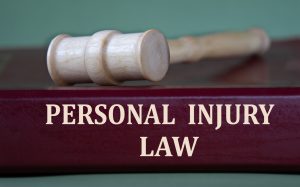In the aftermath of a car accident, individuals often find themselves facing not only physical recovery and emotional distress but also the daunting task of negotiating with insurance companies for a fair settlement. This negotiation process is critical, as it determines the financial support available for medical bills, repair costs, and any compensation for pain and suffering or lost income.
With that in mind, this guide aims to be your compass, offering clear, actionable strategies for effectively navigating the negotiation process when you get involved in a car accident in Idaho or anywhere else.
1. Understand Your Policy And The Law
Before engaging in any negotiation, it’s imperative to have a comprehensive understanding of your insurance policy's specifics and the legal framework governing car accident claims in your area. This knowledge serves as your primary defence against initial lowball offers, ensuring you're fully aware of the extent of coverage you're entitled to and the legal standards for settlements.
Research local and state laws regarding fault, compensation limits, and any nuances that might affect your case. Sometimes, policies contain clauses and details that can significantly impact the settlement process, such as coverage limits for different types of damages or the procedure for disputing a claim.
2. Gather And Organize Comprehensive Evidence
Solid, incontrovertible evidence is critical in negotiations, serving as the foundation of your claim. This includes obtaining copies of police reports, gathering all medical records related to injuries sustained, taking photographs of the accident scene and all damages incurred, securing witness statements, and any other documentation that supports your account of the incident.
Organizing this evidence in a clear and accessible manner strengthens your position in negotiations, making it difficult for insurance adjusters to undervalue your claim. It also prepares you for a more robust defence should your claim proceed to mediation, arbitration, or court.
3. Calculate A Fair Settlement
Calculating a fair settlement is more art than science, requiring you to consider both direct and indirect costs arising from the accident. Direct costs include tangible expenses like medical bills and vehicle repair costs.
Indirect costs cover lost wages, pain and suffering, and sometimes, loss of companionship or quality of life, depending on the severity of the injuries. Accurately assessing these amounts ensures you have a clear target in mind during car accident compensation negotiations, preventing you from accepting offers that fall short of adequately compensating you for your losses.
4. Don’t Accept The First Offer
Insurance adjusters typically start with a low offer, testing whether you understand the value of your claim. Accepting the first offer is seldom advisable as it likely undervalues your actual losses. Instead, view this initial offer as a starting point for negotiations. It's essential to be prepared to explain why the offer is inadequate, using your evidence and calculations as the basis for a counteroffer.
5. Communicate Clearly And Confidently
Effective negotiation is predicated on precise, confident communication. When engaging with insurance adjusters, maintain a firm but polite demeanor and avoid showing any signs of frustration or desperation. Present your case logically and systematically, detailing why you believe your settlement should be higher based on the evidence and calculations you've prepared.
6. Use Silence As A Strategy
Silence can be an effective tool in negotiations. After presenting your case or counteroffer, allow the adjuster time to respond without feeling the need to fill the silence. This can create psychological pressure for them to improve their offer or come back with a more reasonable counteroffer.
7. Consider Future Costs
Accidents can result in injuries with long-term financial implications, including ongoing medical treatment and reduced earning capacity. Your settlement should account for these future costs, not just immediate expenses. This foresight ensures that you won’t be left financially vulnerable if your recovery takes longer than expected or if you experience long-term effects from your injuries.
8. Know When To Involve A Lawyer
If negotiations stall or the settlement offers remain significantly lower than your calculations, it may be time to seek legal representation. Personal injury lawyers specialize in these negotiations and can often secure better settlements through their expertise, negotiation skills, and understanding of the law. Additionally, the mere presence of legal representation can prompt insurance companies to take your claim more seriously.
If direct negotiations fail to yield a satisfactory settlement, mediation or arbitration may offer a viable alternative to litigation. These processes can be less formal, quicker, and less costly than court proceedings while still providing an opportunity for a fair settlement. Understanding these processes and being prepared to present your case effectively in these forums can significantly enhance your chances of a successful outcome.
10. Stay Patient And Persistent
Finally, patience and persistence are key virtues in the negotiation process. Achieving a fair settlement can be a protracted process, and it’s crucial not to rush or feel pressured into accepting an inadequate offer. Staying focused on your objectives and consistently advocating for a fair settlement based on solid evidence and legal principles can ultimately lead to a more favourable outcome.
Conclusion
With the right approach, information, and a bit of perseverance, you're not just a claimant but an informed advocate for your rights and well-being, poised to secure the compensation you deserve. Embrace the journey with the confidence that comes from being well-prepared, and let patience and persistence be your guiding principles toward achieving a favourable settlement.





















